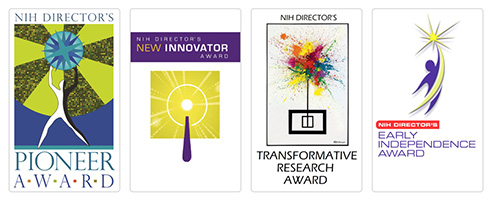
The 2024 NIH Director’s Awards enable exceptionally creative scientists to potentially transform biomedical science
The National Institutes of Health’s High-Risk, High-Reward Research program awarded 67 new research grants to support highly innovative scientists who proposed visionary and broadly impactful behavioral and biomedical research projects. NIH-supported research projects include altering memory networks in the brain to improve sleep health; measuring protein function in the gut microbiome to facilitate the development of microbial therapies; investigating policies and economic conditions that impact mortality among people experiencing homelessness; and understanding the molecular and cellular processes that drive age reversal in a species of flatworms to lay the groundwork for anti-aging medicine for humans. The 67 awards (totaling approximately $207 million) are supported by the NIH Common Fund, as well as three other institutes, centers, and offices across NIH, beginning in 2024 for five years, pending the availability of funds.
“The HRHR program champions exceptionally bold and innovative science that pushes the boundaries of biomedical and behavioral research,” said Tara A. Schwetz, Ph.D., NIH Deputy Director for Program Coordination, Planning, and Strategic Initiatives and Director of the Division of Program Coordination, Planning, and Strategic Initiatives, which oversees the NIH Common Fund. “The groundbreaking science pursued by these researchers is poised to have a broad impact on human health.”
The High-Risk, High-Reward Research program supports investigators at each career stage who propose innovative research that, due to its inherent risk, may struggle in the traditional NIH peer-review process. Investigators seeking program support are encouraged to think beyond traditional bounds and to pursue trailblazing ideas in any area of research relevant to the NIH’s mission to advance knowledge and enhance health.
The Common Fund oversees programs that pursue major scientific opportunities and gaps throughout the research enterprise and require collaborations across the agency to succeed. The High-Risk, High-Reward Research program makes awards in four categories, including two awards specifically for researchers in the early stages of their careers. These four awards include:
- The NIH Director’s Pioneer Award, established in 2004, challenges investigators at all career levels to pursue new research directions and develop groundbreaking, high-impact approaches to a broad area of biomedical, behavioral, or social science.
- The NIH Director’s New Innovator Award, established in 2007, supports unusually innovative research from early career investigators who are within 10 years of their final degree or clinical residency and have not yet received an NIH R01 or equivalent grant.
- The NIH Director’s Transformative Research Award, established in 2009, promotes cross-cutting, interdisciplinary approaches and supports individuals and teams of investigators who propose research that could potentially create or challenge existing paradigms.
- The NIH Director’s Early Independence Award, established in 2011, provides an opportunity to support exceptional junior scientists who have recently received their doctoral degree or completed their medical residency to skip traditional post-doctoral training and move immediately into independent research positions.
NIH issued eight Pioneer awards, 40 New Innovator awards, seven Transformative Research awards, and 12 Early Independence awards in 2024. Funding for the awards comes from the NIH Common Fund, the National Institute of General Medical Sciences, the National Institute of Mental Health, and the National Library of Medicine.
###
About the NIH Common Fund
The NIH Common Fund encourages collaboration and supports a series of exceptionally high-impact, NIH-wide programs. Common Fund programs are managed by the Office of Strategic Coordination in the Division of Program Coordination, Planning, and Strategic Initiatives in the NIH Office of the Director in partnership with the NIH Institutes, Centers, and Offices. More information is available at the Common Fund website: https://commonfund.nih.gov.
About the National Institutes of Health
NIH, the nation's medical research agency, includes 27 Institutes and Centers and is a component of the U.S. Department of Health and Human Services. NIH is the primary federal agency conducting and supporting basic, clinical, and translational medical research, and is investigating the causes, treatments, and cures for both common and rare diseases. For more information about NIH and its programs, visit www.nih.gov.



